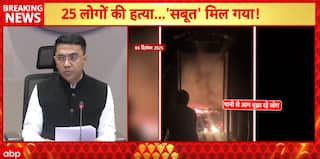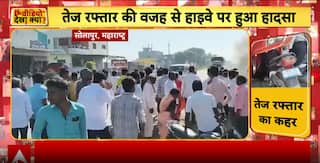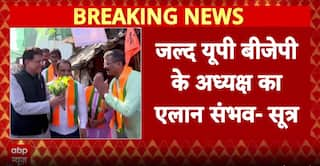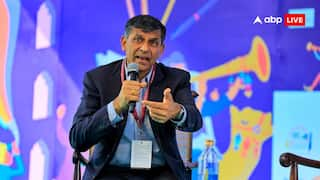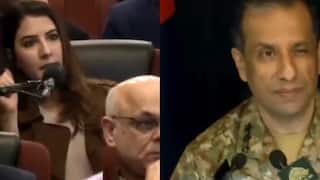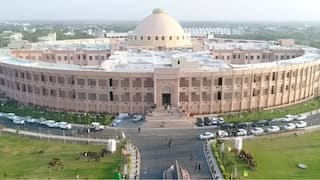Explorer
Autonomy for RBI vital, public interest paramount: Government
Finance Minister Arun Jaitley refused to be drawn into the row saying discussions and consultations with the RBI have never been disclosed publicly.

Finance Minister Arun Jaitley. (Image: PTI)
NEW DELHI: The government on Wednesday said the RBI's autonomy is "essential" and will be "nurtured", as it sought to calm investors worried by the central bank reportedly being forced to resolve differences with the Centre which has cited powers never used before. Finance Minister Arun Jaitley refused to be drawn into the row saying discussions and consultations with the RBI have never been disclosed publicly. The row was sparked off on Friday when RBI Deputy Governor Viral Acharya in a hard-hitting speech warned that undermining central bank's independence could be "potentially catastrophic", possible indication of the RBI being pushed to relax its policies ahead of general elections next year. Sources privy to development said the government has sent at least three letters on different issues under Section 7 of the RBI Act that gives it powers to issue any direction to the central bank governor on matters of public interest. The standoff was in relation to RBI's handling of weak public sector banks, tight liquidity in the market and ways of resolving bad loans in the power sector. Unconfirmed reports claimed Governor Urjit Patel was considering stepping down if the government were to issue an unprecedented direction. Without acknowledging that the notices have been sent to the RBI, the Finance Ministry in a statement said that the "autonomy for the central bank, within the framework of the RBI Act, is an essential and accepted governance requirement. Governments in India have nurtured and respected this". Later, when asked to comment on the issue at a press conference called to highlight India's jump on ease of doing business ranking, Jaitley said he did not have anything more to say beyond his ministry's statement. "That statement also says that the communication between the government and the RBI and layers of consultations (happening) at what level, how it happened and the nature have never in the history been disclosed publicy," he said. Only a final decision arrived is communicated, he added. A senior Finance Ministry official said that the RBI has not been able to contain liquidity crisis and push credit growth. The central bank has not taken adequate steps to address liquidity crunch, which has impacted auto and real estate sectors, he said. Sources said the government has not taken any action of issuing any specific direction and has only initiated consultations with the central bank on unresolved issues. Without making any reference to the letters, the ministry statement said, "both the government and the central bank, in their functioning, have to be guided by public interest and the requirements of the Indian economy." "For the purpose, extensive consultations on several issues take place between the government and the RBI from time to time. This is equally true of all other regulators," it said. The government, it said, has never made public the subject matter of those consultations. "Only the final decisions taken are communicated. The government, through these consultations, places its assessment on issues and suggests possible solutions. The government will continue to do so," it added. Sources said the Finance Ministry wrote three separate letters in the past few weeks to the RBI on issues ranging from Prompt Corrective Action (PCA) framework to liquidity management and sought consultation under Section 7 of the RBI Act. The government wants RBI to carve out exemption for power companies under the PCA framework that outlines triggers for declaring a loan account as stressed or NPA, sources said citing one of the letters. A second letter pertained to use of RBI's capital reserves for providing liquidity to the market and a third letter was for relaxing constraints on banks for loans to Small and Medium Enterprises (SMEs). Section 7 of the RBI Act empowers the government to issue directions to the central bank, after consultation with the RBI Governor, on issues that it considers serious and of public interest. This section has never been invoked before. Sources said Section 7 has two parts -- consultation and then issuing a direction to RBI for taking some action in public interest. Right now only consultations are on, which may or may not result in any direction being issued, sources said. Former finance minister and senior Congress leader P Chidambaram warned of "more bad news" if indeed the government were to invoke Section 7 of the RBI Act. If the move was indeed true, it showed that the government was 'desperate' and was hiding facts about the economy, he said adding that the previous UPA government did not invoke Section 7 prior to liberalisation of the economy in 1991, the Asian financial crisis of 1997 or the period after the recession in 2008. "If, as reported, the government has invoked Section 7 of the RBI Act and issued unprecedented 'directions' to the RBI, I am afraid there will be more bad news today. We did not invoke Section 7 in 1991 or 1997 or 2008 or 2013. What is the need to invoke the provision now? It shows that the government is hiding facts about the economy and is desperate," he tweeted. Sources said never in the history of RBI has a direction under Section 7 of RBI Act been issued to the central bank. The letters seeking consultation under Section 7 apparently prompted Acharya's hard-hitting speech on Friday.
Follow Breaking News on ABP Live for more latest stories and trending topics. Watch breaking news and top headlines online on ABP News LIVE TV
Read more

Sayantan Ghosh
Opinion










